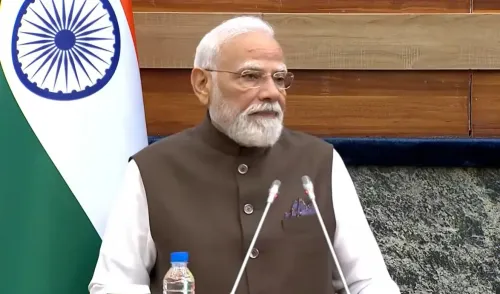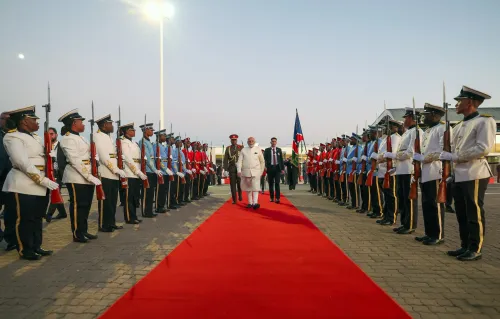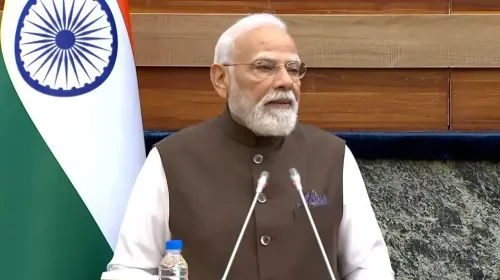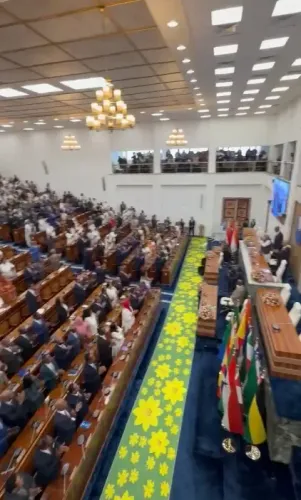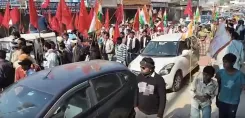How Did the Indian Delegation Inform South Korea's Leaders About Operation Sindoor?
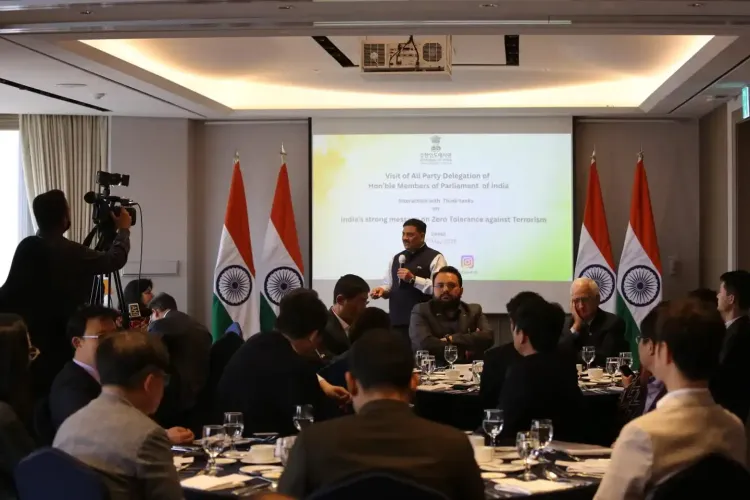
Synopsis
Key Takeaways
- India's zero-tolerance stance on terrorism emphasized.
- Operation Sindoor aims to combat Pakistan-sponsored terrorism.
- Collaborative efforts between India and South Korea to address global threats.
- Significant diplomatic outreach to inform international allies.
- Highlighting the need for unified action against terrorism.
Seoul, May 26 (NationPress) The Indian all-party parliamentary delegation, headed by Janata Dal (United) MP Sanjay Jha, convened on Monday with Yun Ho-jung, Chairperson of the Korea-India Parliamentary Friendship Group within the Korean National Assembly, along with various think tanks. They provided a comprehensive briefing on Operation Sindoor, emphasizing India's unwavering zero-tolerance policy toward terrorism.
The delegation made it clear that India does not differentiate between terrorists and the nations that harbor them, urging South Korea’s collaboration in ensuring that the organizers, perpetrators, and financiers of terrorism face justice. Chairperson Yun expressed that any form of terrorism is intolerable and cannot find justification, reinforcing South Korea’s robust opposition to terrorism.
The delegation, which includes BJP MPs Aparajita Sarangi and Brij Lal, Trinamool Congress MP Abhishek Banerjee, CPI(M) Rajya Sabha member John Barittas, and senior Congress leader Salman Khurshid, is part of India’s extensive diplomatic initiative to underscore the importance of Operation Sindoor and its ongoing battle against Pakistan-sponsored cross-border terrorism.
During their visit, the delegation interacted with think tanks and legislators in Seoul, delivering a potent message of India's zero tolerance for terrorism. They elaborated on the horrific terrorist attack in Pehalgam and India’s precise, responsible, and measured response, reiterating their stance against terrorism.
According to the Indian Embassy's update on X, the delegation highlighted India's No First Use Policy and its repudiation of any nuclear blackmail, asserting their commitment to a vigorous response to terrorism.
South Korean think tanks expressed solidarity with India, condemning the terrorist attack and acknowledging the zero-tolerance policy against terrorism. Discussions also revolved around collaborative strategies for India, South Korea, and the global community to face terrorism together.
Jha pointed out that members from both ruling and opposition parties in India traveled to South Korea to inform about the April 22 Pahalgam terrorist attack as part of the Operation Sindoor global outreach campaign. "The seven delegations are dispatched by the Government of India worldwide to inform about the incidents in Kashmir on April 22, when 26 innocent tourists were massacred by terrorists in front of their families, chosen based on religious lines. All terrorists originated from Pakistan, trained and financed there, reminiscent of the 2008 Mumbai attack," Jha explained.
BJP MP Aparajita Sarangi drew a parallel between South Korea's tensions with North Korea and India’s ongoing conflict with Pakistan, emphasizing the similar nature of the terrorist threats posed.
"The situation you face with North Korea mirrors our challenges with Pakistan," she asserted. "What occurred should never have taken place. I firmly believe that Pakistan is a habitual offender in terrorist activities, constantly attempting to destabilize India since its inception in 1947–48. Our Prime Minister has called for a 'new normal' and we seek your support in this ongoing struggle against terrorism," Sarangi stated.
TMC MP Abhishek Banerjee remarked that Operation Sindoor on May 7 was a direct response to the April 22 Pahalgam attack executed by terrorists trained in Pakistan.
"Any assistance offered to Pakistan effectively supports a terror organization. Anyone justifying or defending Pakistan's actions is, in reality, endorsing terrorism. The world witnessed the horror of the 2008 Mumbai attacks where 166 innocent individuals lost their lives, including citizens from 26 nations, not just India," he argued.
"The key suspect arrested by Indian authorities confessed to being trained in Pakistan. Following the April 22 attack, we anticipated Pakistan would act justly; however, after waiting for 14 days, India executed airstrikes on May 7 with pinpoint accuracy, eliminating nine terror infrastructures without risking civilian lives," Banerjee concluded.


